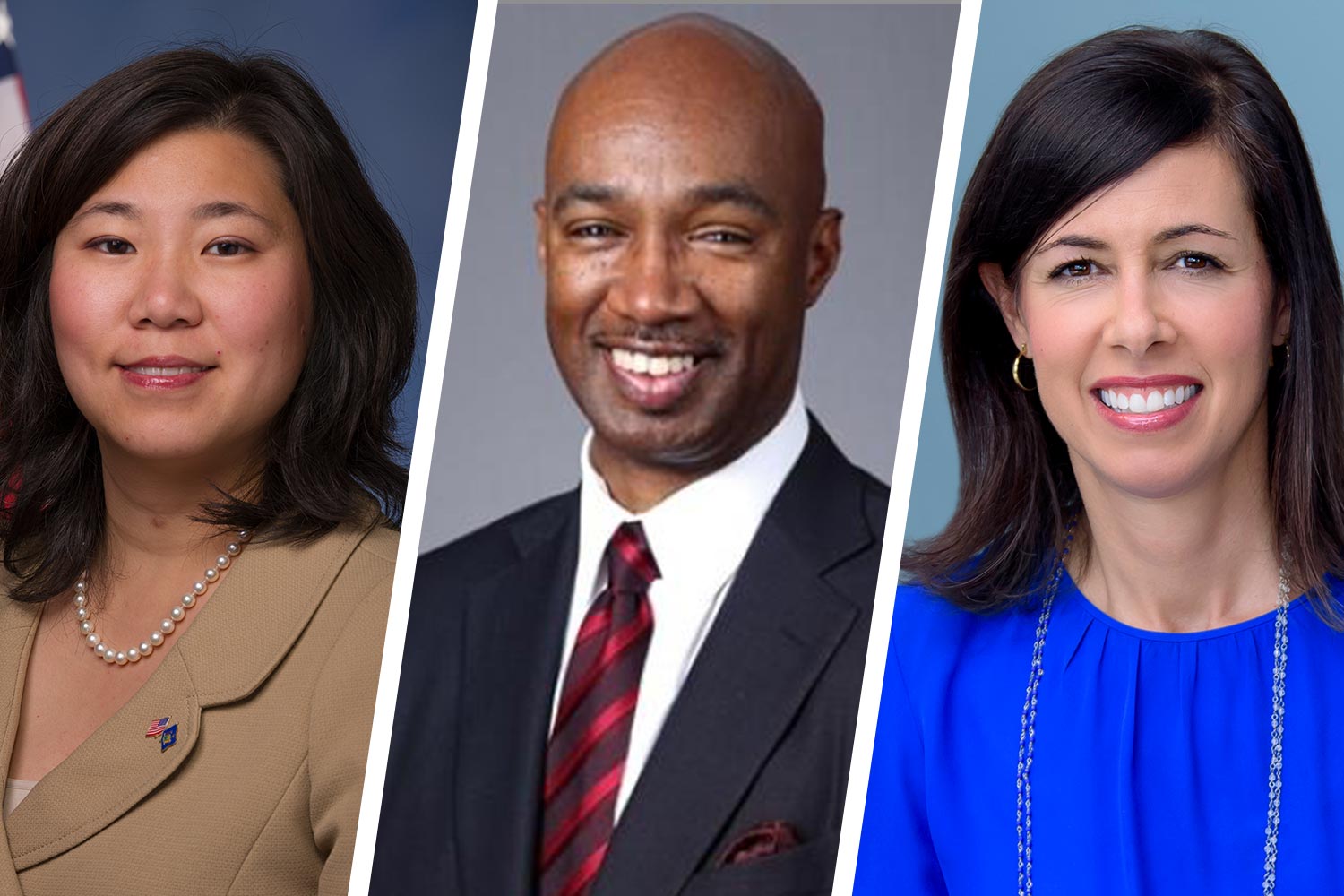UVA President Jim Ryan moderated the event, kicking off the discussion by highlighting UVA’s own challenges in delivering online education to students last spring.
Joining Ryan to explore the issue were panelists Larry Irving, a former administrator of the National Telecommunications and Information Administration under President Clinton; U.S. Rep. Grace Meng, a New York Democrat who has led the legislative effort in the House of Representatives to ensure students have internet access during the pandemic; and newly appointed Federal Communications Commission Acting Chair Jessica Rosenworcel.
Here are three takeaways from the conversation.
Internet Access Is an Essential Utility
The digital divide was first documented in 1995. For decades, educators and politicians have pushed for solutions to inequitable home internet access, also known as the “homework gap.” But in 2020, the importance of internet access has been thrown into starker relief.
As the pandemic has made clear, internet access is a matter of educational equity. “There are studies that suggest that 16 to 17 million kids fall into the homework gap,” Rosenworcel said. “Then the pandemic hit, and the kids who fell into that homework gap were locked out of the classroom.”
In addition to concerns about education equity, panelists also discussed the economic impact on small businesses and communities of color, as well as access to virtual health care during the pandemic. Ultimately, they argued that basic internet access should be viewed as an essential service, like water or electricity.
“How can we have all these complex discussions about equitable access to education and opportunity when we’re not even providing what I believe is a human right in this day and age?” Meng asked.
Panelists also emphasized the role of government in closing the digital divide. “At the end of the day, the responsibility has to be with state, local and federal government to see that we have the basic things we need,” Irving said.
“Generosity is good, but justice is better,” Rosenworcel added.
Lack of Internet Isn’t Just a Rural Problem
All three panelists emphasized that the digital divide has been labeled largely as a rural issue. In fact, lack of internet access affects millions of low-income urban families and more. According to Irving, 27% of senior citizens aren’t connected to home broadband.
“I’m a congresswoman from a relatively urban area, and I did not expect when I went to Congress that I would be prioritizing this issue,” Meng said. Yet, she recounted quickly learning that lack of internet access affects communities and individuals throughout the country.
“In a nation where so much divides us, I kept hearing the same stories everywhere,” Rosenworcel said. “We found that seven in 10 teachers assign homework that requires internet access, but one in three households don’t have broadband.”
Panelists pointed to two major problems that contribute to lack of internet access: infrastructure and affordability.
“There’s a lot of things that factor into it,” Irving said. “Elderly, immigrants, inner-city … but if you add poverty to any of that, that’s the major problem.”
Both Rosenworcel and Irving stressed that both infrastructure and affordability must be addressed. “We never solve the digital divide if we don’t deal with those two things,” Rosenworcel said.
Now Is the Right Time to Act
Meng expressed optimism about growing support for solutions. “There is momentum right now,” she said. “Because we’re in a pandemic, more people than ever understand the importance of internet access and what it means for everyday Americans.”
Meng encouraged listeners to contact their government officials at all levels and share their personal stories. Rosenworcel said constituents can also voice their support for expanding existing programs, like the federal E-Rate program that supports internet in schools, to include connecting students to internet at home.
In the meantime, there’s more that individuals can do to help address immediate concerns. At the local level, panelists said school leaders can help illuminate the scope of the problem by gathering data on how many of their students lack access. Individuals can donate devices, teach technology skills and digital literacy, and create maps of free Wi-Fi spots in their local area. Rosenworcel told a story of one community that distributed window decals to local businesses with Wi-Fi, advertising safe places to do homework.
I think we need ‘No Child Left Offline.’ I think this is the moment.
- Federal Communications Commission Acting Chair Jessica Rosenworcel
Altogether, panelists urged listeners to get involved and keep momentum going in support of ending the digital divide for good.
“I think we need ‘No Child Left Offline,’” Rosenworcel said. “I think this is the moment.”








